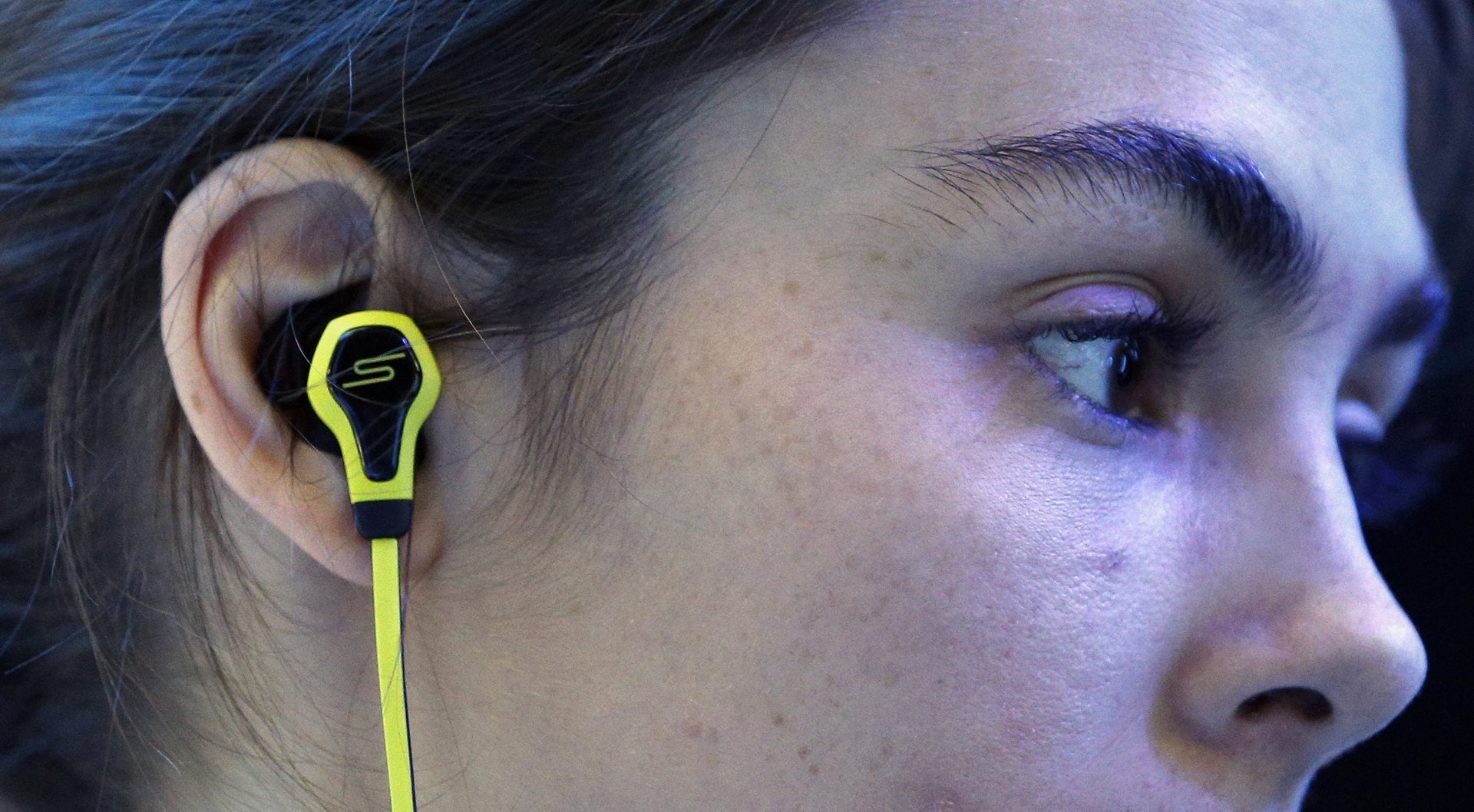The most uplifting podcasts of 2017 are shows about depression, heartbreak and loss
Once a week, radio veteran John Moe sits down with a guest—usually a professional comedian—for a laugh-filled chat about debilitating mental illness. The Hilarious World of Depression podcast, which launched in mid-December 2016 and is halfway through its second season, wades headlong into a discussion about a condition that 42.5 million people live with in the US alone, but that we’ve somehow decided can only be discussed in grave, hushed tones.


Once a week, radio veteran John Moe sits down with a guest—usually a professional comedian—for a laugh-filled chat about debilitating mental illness. The Hilarious World of Depression podcast, which launched in mid-December 2016 and is halfway through its second season, wades headlong into a discussion about a condition that 42.5 million people live with in the US alone, but that we’ve somehow decided can only be discussed in grave, hushed tones.
This podcast drags such conversations out into the open. “At 9 or 10 I started writing in journals that I wanted to die and wanted to kill myself,” comedian Maria Bamford tells Moe of the early stages of her depression, which is now well controlled. “I’d leave them around the house, as you do, and my mother would read them—’Honey? Are you gay?’ That was her main concern, was I gay. Seems an odd go-to, but I get it.”
The show doesn’t make light of the realities of mental illness—many guests, including Margaret Cho, Wil Wheaton, and broadcasting legend Dick Cavett have experienced serious, life-threatening complications of the disease. But it makes it clear that it’s okay to laugh about the experience of living with atypical neurochemistry, and showcases comedians’ unique ability to put the experience into words.
“Comedians articulate the things that are unspoken, the things going out in our psyche,” Moe, a public radio veteran and previous host of the variety show Wits, tells Quartz. “They bring them out and what gets a laugh is the surprise of those things being spoken, and the relief that you’re not alone. You laugh because you’re so happy to not be alone in the world.” Anything that you can laugh about stops being a big, scary, unspeakable thing, and instead just becomes a regular thing—an absurd, interesting, painful, baffling thing that is just one part of fuller life. It’s a reminder, as Moe often says on the show, that depression is something you have, not something you are.
THWOD is one of several podcasts this year that took on the stuff we don’t usually talk about with humor, grace, and honesty. There’s Heavyweight, in which host Jonathan Goldstein helps people address the unfinished business of their lives: the siblings estranged for decades, the painful snub by a once-close friend. There’s also Terrible, Thanks for Asking, in which host Nora McInerny invites guests in for funny and frank conversations about life-altering loss.
McInerny is no stranger to grief—she suffered a miscarriage and the deaths of her father and husband in just a few short weeks in 2014. But the episodes of her show aren’t tragedy porn. They’re funny and frank, usually held in a half-incredulous, Can you believe this shit? tone of ordinary people handed extraordinary pain: a beloved and profoundly disabled child, a spouse permanently altered by sudden brain injury, the sibling whose recovery was going so incredibly well up until the final overdose.
Listening to these podcasts can be very helpful in the most practical sense—THWOD promotes Make It Okay, an group working to destigmatize mental illness, and the online counseling app Talkspace advertises heavily on all three shows. But they’re also an appealing antidote to a strain of self-help that runs through popular culture, one that presents blissful happiness as the default expectation—a state that can be achieved if you just try harder, work harder, and vanquish nasty thoughts. It’s a mindset evident in one of the year’s most anticipated business books, investor Ray Dalio’s Principles, which advises readers to “pretend that your life is a martial art of a game, the object of which is to get around a challenge and reach a goal.”
That’s good advice, for a particular kind of obstacle life chucks in the way. It’s really useless advice for handling other types of problems, the kind that show up on your doorstep, toss you their suitcase, and settle onto your couch for the long haul. You can learn to manage them, or mitigate them, or understand them better, but some things—usually, the very hardest things—can’t be overpowered and defeated. Some things you just have to live with.
Podcasts are a really good place for conversations about these kinds of things: human, one-on-one conversations that can be listened to in as private and comfortable a space as the listener chooses. It’s an intimate experience, stripped of all other sensory distractions, and it gives the listener the space to take in ideas that make you feel vulnerable. Podcasts like these encourage you to sit for a moment with the fact that the world is weird and complicated, so it’s okay if you feel that way sometimes, too. Of all the voices that may swirl around in your head, having one to tell you that you’re not alone is a comforting thing.